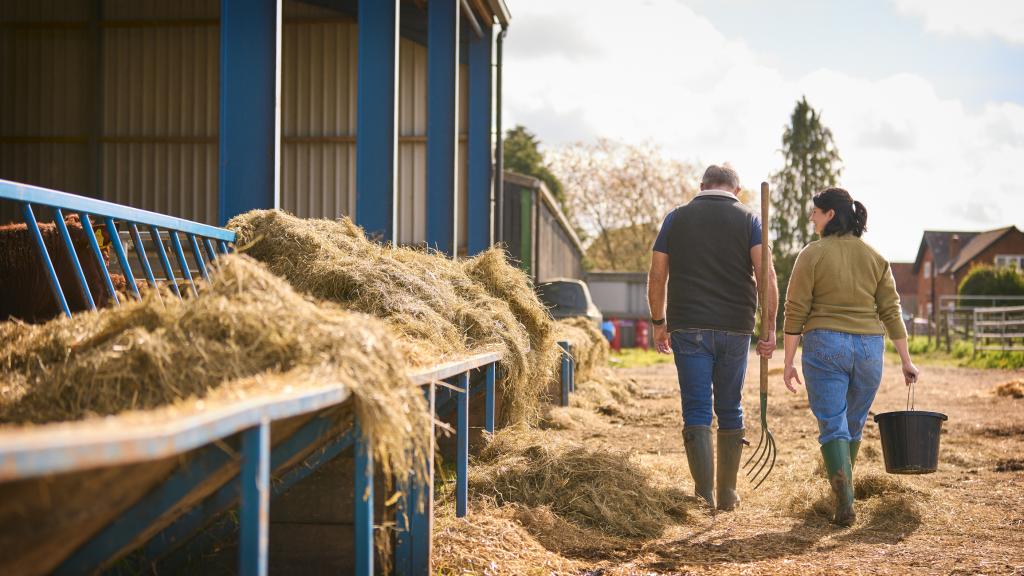
Farmers have had a lot to worry about lately. The changes in the inheritance tax regime has caused a lot of anxiety in the farming community and with trade wars, climate change and the risk of foot and mouth from the continent, you’d be excused for not wanting another thing to worry about.
However, the funding crisis within the care system coupled with the financial crisis within most Local Authorities does need your attention – not least because there are steps which can be taken now to give your farm the best chance at passing to the next generation in a fit state to continue.
Life expectancy is increasing and that means that more of us live to an age where we cannot be fully independent and we need some extra help and care. Our families are all working for longer with the retirement age rising and that means that there is a gap between the care needed and the family members available to provide it.
Financial assessment for care home fees
If you need to go into a care home your finances will be assessed to work out if you can pay for your care. The financial assessment is very detailed and will take into account all of your income and capital although the Charging for Residential Accommodation Guide published by the UK Government sets out what capital should be or may be disregarded. The devil is in the detail with certain charitable payments and personal injury damages (for example) not included in capital and with a 12 week disregard for your home.
Other assets should be disregarded – so if you own your home jointly with someone else who is over 60 and continues to live in that property, the value of it will be disregarded. There is also a discretionary element so that the Local Authority may disregard your home in different circumstances such as if you share it with someone who has given up their home to look after you.
However, here in the South West we have a higher proportion of elderly residents so demands for care places and funding is high. Our Local Authorities are therefore keen to ensure that everyone who can self-fund, does.
If your income is sufficient to pay for your care then your capital will not be affected. However, the average retired farmer is not earning at least £54,000 p.a. after tax so it is likely that your capital will be assessed. If there is a shortfall in your income and your capital is more than £23,250 then you will be responsible for paying for all of your care fees. If your capital is under £14,250 then you will not have to use your capital to pay your care fees (although your income will still be directed to pay fees). If you have between £14,250 – £23,250 then you will pay a sliding scale of contribution.
The difficulty for the farming community in particular is that it is very common to own different parcels of land which may be part of the farm but which are not included as your ‘home’ and therefore disregarded. Similarly, business assets are not automatically disregarded as capital and that includes shares in a farming partnership. Many farmers are surprised to find themselves being asked to sell part of the farm land or their share of the farming partnership in order to meet their care fees, leaving a much smaller farm to pass on to the next generation.
Inheritance tax
A lot of this has come about because the zero-rated inheritance tax available for agricultural and business property meant that there was no incentive to get farms passed to the next generation while the current farmer was alive – inheriting the farm was often much more tax effective. However, with that no longer the case, it is a good time to get the whole farmhouse in order.
The regulations include extensive powers for the Local Authority to ignore or set aside any transactions undertaken to deliberately avoid paying towards care home fees. However, there is no rule against either giving assets away to mitigate your inheritance tax position nor agreeing terms in your farming partnership agreement which facilitate the release of cash to outgoing partners in a way which does not put the future of the farm at risk. It is also possible to use life interest trusts in your will to safeguard at least half of the farm against future claims by the Local Authority.
In these times of accelerated change, it makes sense to review your arrangements to anticipate meeting your own needs for care in the future at the same time as protecting the future of the farm. As the famous saying goes – we cannot control the wind but we can adjust our sails and in the current changeable conditions for farmers, there has never been a better time to make sure you have done everything you can to ride out the storm.
If you wish to discuss anything mentioned in this article please contact our Inheritance and Trust Disputes team.
